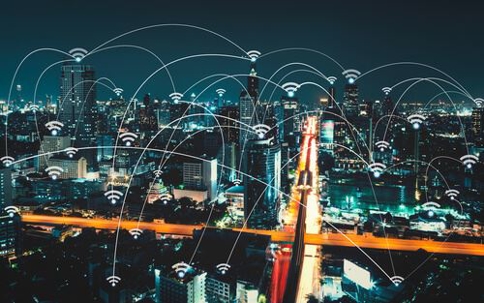Amazon Sidewalk “raises more red flags than a marching band parade,” according to The Washington Post. Criminal defense attorneys say it could be “huge” for defending clients from internet crimes because even with the 3 layers of encryption Amazon boasts, no one will have a truly private network anymore.
What Is Amazon Sidewalk?
On Amazon.com, the company describes Amazon Sidewalk as “a shared network that helps devices like Amazon Echo devices, Ring Security Cams, outdoor lights, motion sensors, and Tile trackers work better at home and beyond the front door.”
The technology essentially allows neighbors to share a low-bandwidth wireless network that makes it easier for everyone to set up – and use – Amazon devices. You will still use your standard Wi-Fi connection to do all the things you normally do, but the entire neighborhood will be connected via Sidewalk, which can span half a mile and gets stronger with more Sidewalk-enabled Amazon devices.
So, what’s the problem? As several news outlets explain, consumers have no control over who uses the Sidewalk network or what sort of data it transmits. Amazon could be spying on you, and there may be questions of who is using your Wi-Fi – and for what.
Illegal Internet Activities
For example, your neighbor could use Sidewalk and their Amazon Echo device to search for or stream child pornography. If the neighbor uses your Wi-Fi, law enforcement could ultimately show up at your house. Similarly, Sidewalk can create reasonable doubt for criminal defense clients who may have been the ones engaging in an illegal online activity because Sidewalk muddles the question of “whose Wi-Fi is whose?” and could make it difficult for prosecutors to prove guilt beyond a reasonable doubt.
Illegal In-Person Activities
Conversely, footage captured via Amazon Ring doorbell devices will be on the Sidewalk network, which is a consumer-funded network entirely controlled by Amazon. Because the Wi-Fi doesn’t technically “belong” to anyone, Amazon may be able to hand over Ring footage to the authorities. In 2020, police forces made more than 20,000 requests for Ring footage, and now, the footage will exist on Amazon’s mesh network. Ring footage has already helped prosecutors make convictions, and consumers’ safety and privacy concerns are valid. Many people feel like “big brother is always watching” a la George Orwell’s Nineteen Eighty-Four, but in this case, it’s Amazon that is watching.
Amazon’s technology is increasingly invasive, and there’s nothing stopping the police from accessing what has become a remarkable private surveillance network.
Should I Turn Amazon Sidewalk Off?
If you do not opt out of Amazon Sidewalk, it will go into effect automatically. Because the technology went into effect on Tuesday, June 9, 2021, Amazon Sidewalk may already be functioning on your device.
A blog from The New York Times’ Wirecutter Inc. weighs the pros and cons of using Amazon Sidewalk, but the choice is up to you.
If you want to turn off Amazon Sidewalk, open the Settings section of the smartphone app(s) for your device(s), select Account Settings for your Echo or Control Center for your Ring, Select Amazon Sidewalk, and use the slider to choose Disabled.
What If I’m Charged with an Internet Crime?
Even advocates of Amazon Sidewalk acknowledge the inherent risk present with any shared network. If a shared network leads to criminal charges, you should contact an attorney immediately.
You should also contact an attorney anytime you are charged with an internet crime. With the presence of mesh networks, there may be reasonable doubt, and a good lawyer will help you highlight this and fight for the best possible outcome.
At Bleile & Dawson, we will never leave a possible defense unexplored, and we have more than 50 years of collective experience against all charges.
When you need a defense team that will protect what is important to you, call us at (513) 399-5945 or contact us online. We are available 24/7 to help find a solution for you!

